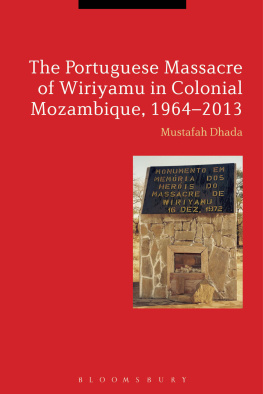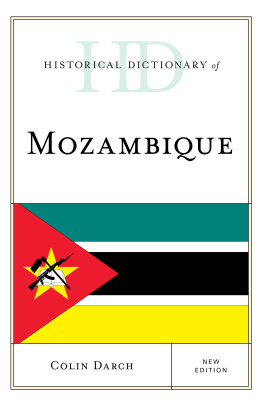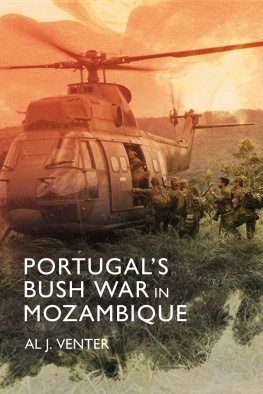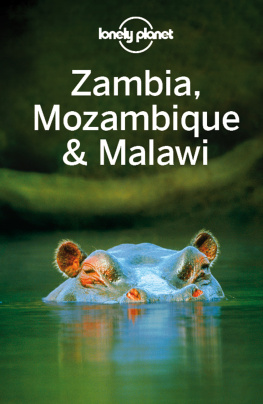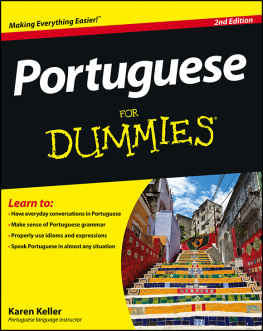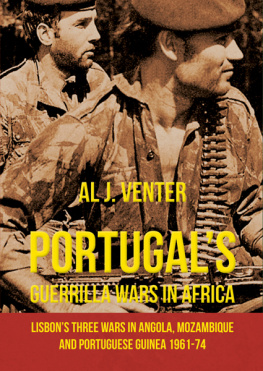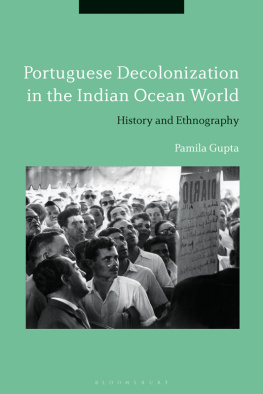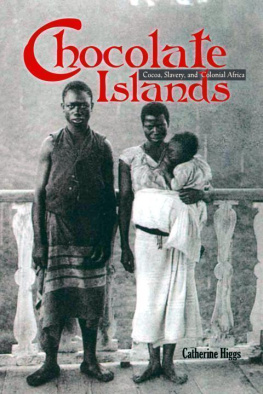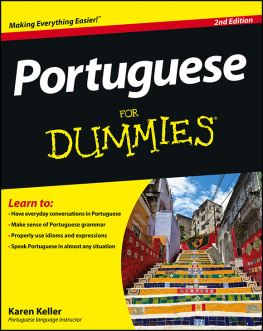Mustafah Dhada - The Portuguese Massacre of Wiriyamu in Colonial Mozambique, 1964-2013
Here you can read online Mustafah Dhada - The Portuguese Massacre of Wiriyamu in Colonial Mozambique, 1964-2013 full text of the book (entire story) in english for free. Download pdf and epub, get meaning, cover and reviews about this ebook. City: London, year: 2016, publisher: Bloomsbury Academic, genre: Detective and thriller. Description of the work, (preface) as well as reviews are available. Best literature library LitArk.com created for fans of good reading and offers a wide selection of genres:
Romance novel
Science fiction
Adventure
Detective
Science
History
Home and family
Prose
Art
Politics
Computer
Non-fiction
Religion
Business
Children
Humor
Choose a favorite category and find really read worthwhile books. Enjoy immersion in the world of imagination, feel the emotions of the characters or learn something new for yourself, make an fascinating discovery.
- Book:The Portuguese Massacre of Wiriyamu in Colonial Mozambique, 1964-2013
- Author:
- Publisher:Bloomsbury Academic
- Genre:
- Year:2016
- City:London
- Rating:3 / 5
- Favourites:Add to favourites
- Your mark:
- 60
- 1
- 2
- 3
- 4
- 5
The Portuguese Massacre of Wiriyamu in Colonial Mozambique, 1964-2013: summary, description and annotation
We offer to read an annotation, description, summary or preface (depends on what the author of the book "The Portuguese Massacre of Wiriyamu in Colonial Mozambique, 1964-2013" wrote himself). If you haven't found the necessary information about the book — write in the comments, we will try to find it.
The Portuguese Massacre of Wiriyamu in Colonial Mozambique, 1964-2013 — read online for free the complete book (whole text) full work
Below is the text of the book, divided by pages. System saving the place of the last page read, allows you to conveniently read the book "The Portuguese Massacre of Wiriyamu in Colonial Mozambique, 1964-2013" online for free, without having to search again every time where you left off. Put a bookmark, and you can go to the page where you finished reading at any time.
Font size:
Interval:
Bookmark:
To Those Who Perished at Wiriyamu,
I Hope They Find a Place to Rest Here

Contents
Peter Pringle
In the chronicles of indiscriminate and brutal slaughter of human beings over the centuries, the story of the Wiriyamu massacre is not widely told. Under events named massacresto distinguish them from genocideWikipedia lists more than one hundred and seventy, starting with the Romans killing Druids in Britain in the year 61, and ending with Sandy Hook Elementary School in the USA in 2012. Many of these atrocities from the last hundred years are well known: Amritsar, India, 1919; Guernica, Spain, 1937; Katym, Soviet Union, 1942; Sharpeville, South Africa, 1960; My Lai, Vietnam, 1968; Derry, Northern Ireland, 1972; Shabra and Shatila, Lebanon, 1982; Tiananmen Square, Beijing, 1989; Luxor, Egypt, 1997; Virginia Tech, USA , 2007; Houla, Syria, 2012.
The name of Wiriyamu, once a thriving African village of mud huts with straw roofs in west-central Mozambique, is not on the list. Yet on the morning of December 16, 1972, Portuguese colonial troops herded the inhabitants of Wiriyamu, including women and children, into the central square and ordered them to clap their hands and chant goodbye. The troops then opened fire. Those who were not killed in the fusillade were blown to pieces by grenades. Shouting, Kill them all, the soldiers continued the slaughter in four neighboring settlements near the banks of the Zambezi River where Mozambique juts into Zimbabwe (then Rhodesia), Zambia and Malawi, a region the Catholic missionaries knew as the land God forgot. By the end of the day, almost four hundred villagers lay dead, their remains smoldering in funeral pyres made by the soldiers with straw from the roofs of their huts. A handful escaped to tell the story to local missionaries, who managed to smuggle lists of the dead to Europe, and eventually to London. Seven months later, on July 10, 1973, The Times published an account of the massacre by Father Adrian Hastings, a former British missionary in Africa. The single-column story with its restrained headline Portuguese massacre reported by priests reflected the uncorroborated nature of the report. The priests themselves had not witnessed the killing fields; no Times journalist had been to Mozambique to investigate them. Lisbon seized on this vulnerability and denied the report, calling the allegations hearsay and even claiming that a settlement named Wiriyamu simply did not exist.
This was an era before the Internet, before social media and Google Maps, a time when such reports from remote lands were filed without computers, or satellite phones, or the back-up of CNN . Journalists sent their stories, laboriously, via telex machines, if they could find one. The truth that four hundred Africans had been massacred emerged slowly. The priests had initially carried their reports to Rome, and only when that avenue produced no results had Father Hastings taken them to London.
The consequences of this revelation were huge. They triggered a mutiny by the young captains of the Portuguese colonial army who had long known that the African wars against the liberation movements were not winnabledespite proclamations from their generals about imminent victory. Nine months after The Times story, these young officers, with carnations instead of bullets in their rifle barrels, toppled the fifty-year-old fascist dictatorship in Lisbon. In that revolution, not a shot was fired.
Over the years, several authorsof articles, books, academic journal papers, two novels, and the makers of a documentaryhave attempted to recreate what really happened. But the story of Wiriyamu has been hard to piece together. The records are sparse. Key official government documents have been lost, or deliberately destroyed, or never existed. The archives of the liberation movement, known as Frente de Libertao de Moambique (Front for the Liberation of Mozambique, FRELIMO), were fragmentary. Access to witnesses always was and has remained a problem. Getting to the site that was Wiriyamu was an ordeal, and finding villagers willing to speak of that day has always been difficult, and, of course, the perpetrators of the crime, the young Portuguese soldiers and the Direco-Geral de Segurana (General Directorate of Security) or DGS agents, were not ready to admit what they had done. Shortly after The Times report, FRELIMO fighters assassinated a key witness, the chief DGS undercover agent who had orchestrated the massacre.
Now, an author with credentials like no other for reconstructing the narrative has emerged to tell the story of Wiriyamu. A Mozambican-born son of a mechanic, Mustafah Dhada became a history professor. He grew up in central Mozambique, leaving only when the colonial war became unbearable for him and his family. For the last four decades, he has been putting together an archive documenting the massacre. His book is a unique insight into what happened.
As a British journalist based in London at the time, I played a small part in this drama by reporting on the massacre after the priests had revealed it. Within a few weeks in the summer of 1973, I encountered the complex backdrop to the massacre: the row over the first reports in London, the inevitability of the defeat of the Portuguese colonial masters in Africa, the cruelty of the secret police who kept Europes last fascist regime in power, the fraught relations between the priests and the church hierarchy, the stunning courage of the young Catholic missionaries, and the rising power of the nationalist movements in Portugals 400-year-old African colonies.
I met Mustafah Dhada in the summer of 1973. He was a 22-year-old researcher, working in the cramped offices of a tiny lobbying organization named the Committee for Freedom in Angola, Mozambique and Guinea. I was a journalist on The Sunday Times ( The Times sister paper) trying to verify Father Hastings reports that caused such a rift in British politics.
The Times published the Wiriyamu story on the eve of a state visit to London by Portugals then President, Marcello Caetano. The Tory government of Edward Heath rushed to the defense of Portugal, famously Britains 600-year-old ally (and a North Atlantic Treaty Organization [ NATO ] member who provided the United States with important staging posts for its role as the worlds policeman). Heath denounced The Times report as unsubstantiated propaganda. In a bitter House of Commons debate, Harold Wilson, the leader of the opposition Labour Party, called on Heath to cancel the visit, suggesting instead extending an invitation to the Prime Minister of New Zealand (whose government was protesting French nuclear tests in the Pacific). The Labour Partys objection was not connected with the massacre reports, Wilson asserted. Rather, it was a condemnation of the whole life-style of Portuguese fascism at home and repressive colonialism abroad. But the Tory government went ahead with the visit.
Caetano arrived in London. A police cordon surrounded the Portuguese embassy and five thousand soaked demonstrators turned out to protest under the banner of the Committee for Freedom in Mozambique, Angola and Guinea. A few days later, in the Mozambique capital, Loureno Marques, the Lisbon government organized a counter demonstration of tens of thousands protesting against The Times report and Harold Wilsons House of Commons speech. May God deliver our English friends from Mr. Wilson, said one placard. The governor-general of Mozambique, Pimentel dos Santos, told the crowd, We [Portugal] are the only country which has not yielded to the psychosis of abandonment [of our colonies] and continue silently devoted to the concept of a multiracial society, which is our reply to the problems of Africa and the world.
Next pageFont size:
Interval:
Bookmark:
Similar books «The Portuguese Massacre of Wiriyamu in Colonial Mozambique, 1964-2013»
Look at similar books to The Portuguese Massacre of Wiriyamu in Colonial Mozambique, 1964-2013. We have selected literature similar in name and meaning in the hope of providing readers with more options to find new, interesting, not yet read works.
Discussion, reviews of the book The Portuguese Massacre of Wiriyamu in Colonial Mozambique, 1964-2013 and just readers' own opinions. Leave your comments, write what you think about the work, its meaning or the main characters. Specify what exactly you liked and what you didn't like, and why you think so.

